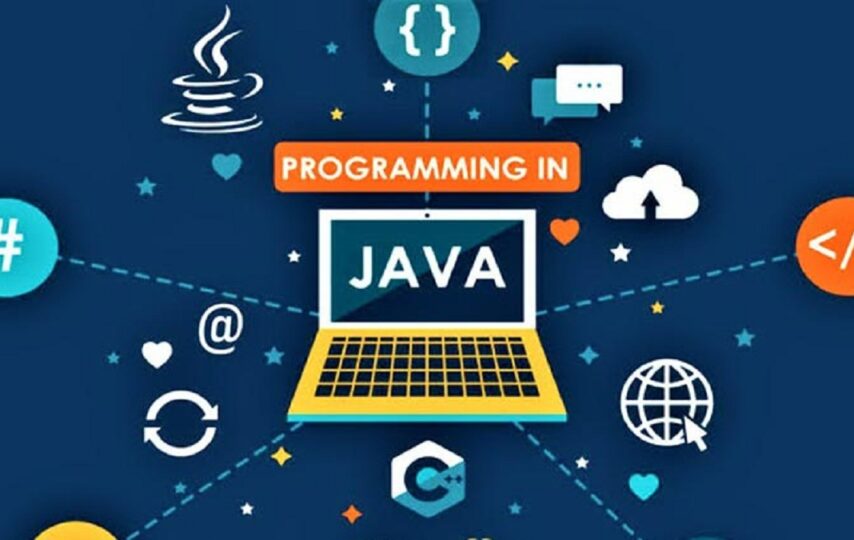Pretty much everyone has heard of Java in some context. But many people probably don’t realize just how widespread its applications are. One of the reasons for Java’s global popularity is precisely because of its versatility.
Let’s take a look at the top industries that still continue to use Java just as actively as they did several years ago. As you’ll see, its dominance of the market remains unbeatable. To see how you can make Java work for your company – regardless of the industry – check out Jazzteam and the services it offers.
Finance
Java’s use in finance is only continuing to grow. Its uses apply widely across different finance-related areas. This ranges from banks to insurance companies to capital markets. Financial institutions choose Java partially because of its security features. Java is specifically designed to restrict data access by undesirable people, and it also includes quite a few memory safety features that helps to safeguard programs from mistakes. Java-based patterns are particularly useful in preventing fraud.
In addition, Java’s portability helps to prevent memory leaks. It uses the Java Virtual Machine, which allows users to run Java bytecode on any machine that is independent of a particular OS.
Government
There is no truer sign of authoritativeness in a program than widespread use by the government. And indeed, Java is used across many government sites, not only in the US but also in other countries.
Java remains among the favorite languages for many different aspects of government. This includes state and municipal governments, major federal departments such as NASA and the National Institutes of Health, and in branches of the military such as the Navy and Coast Guard.
Retail and e-commerce
Java is used very widely in mobile development, and for Android in particular. This is beneficial for retail businesses as it is instrumental in developing customer-facing mobile apps. This includes online shopping, the creation of loyalty programs, the monitoring of orders by customers, and a whole range of customized applications.
E-commerce companies prefer using Java because it is easy to integrate with third-party systems and provides user-friendly interfaces that help attract more customers. It is also particularly useful for large companies in being able to handle large order volumes and process data in real time.
Transportation and Logistics
Java software engineering is helping to lay the foundation for building intelligent transportation systems (ITSes). These are systems that use data analytics to optimize traffic flow and improve transportation efficiency overall. As with other applications, Java’s platform independence is useful in functioning across whole ecosystems.
Another transportation-related application of Java is in the enabling of software solutions that power connected vehicles. Java is the preferred language for connected vehicles because of its security features, ability to send and receive updates remotely, and integration with the IoT.
Logistics similarly uses Java for supply chain management. Logistics companies prefer the use of Java in developing logistics management systems because of its scalability, ease of large-scale data processing, and ability to integrate with enterprise-level systems.
Healthcare and medicine
Even healthcare uses Java in its operations. Java is used in the creation and maintenance of electronic patient records, online scheduling of appointments, and in the creation of e-prescriptions. This saves healthcare professionals an inordinate amount of time and energy.
It is also used in the creation of whole healthcare information systems (HISs). HISes are information systems that collect, process, and use health-related information for research and in an attempt to influence policy making on a large scale. It is used by activists for healthcare-related causes to support their positions.
Education
The education industry is similarly using Java for a wide range of applications, including e-learning solutions, university administration systems, and for various types of teaching tools.
Particularly with the growth of distance learning that grew massively during the pandemic, these types of tools are now in even higher demand.
The list goes on
We could go on and on about the countless applications for Java across a whole range of industries. The fact is, it is unbeatable in many respects: It is the original and most widespread programming language, and therefore finding compatible platforms, applications, and partners is easier than with any other language.
Java also has time-tested security features that make it more reliable for industries that process highly sensitive data. Professionals don’t want to experiment with things that might not work once they’ve found a reliable solution.
And it is user-friendly. Not everyone is a tech genius by nature, so Java’s easy learning curve makes it a favorite for people at many different levels. For all these reasons and more, you should use Java for all of your programming needs. You will rest easy knowing you’re using the most solid, reliable program out there.








